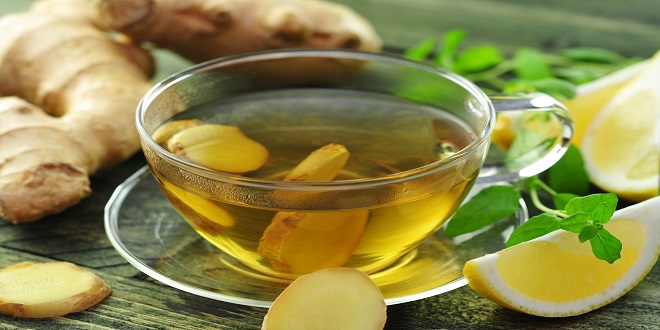
7 Foods for Healthy Digestion during Ramadan
Eating healthy and being cautious of what you eat can be quite difficult to maintain in the holy month of Ramadan. With all the feasts that you are blessed with every day and throughout the month, and dishes to entice your cravings, it is hard to keep away from eating what may not be easy to digest later. People usually come across various stomach related problems such as, diarrhea, constipation, nausea, and so on during Ramadan. Having a good immune system not only keeps your bowel movements regular but also helps build a good digestive system. So, to help you not keep away from the savories, here are some foods you can go along with for healthy digestion during Ramadan.
1. Ginger

Various studies have demonstrated this food (easily available in almost every home) works especially well against sickness whilst enhancing digestive system. Ginger can effectively treat various gastrointestinal (GI) discomforts. The anti-inflammatory and antibacterial properties in ginger can curb digestive spasms, gas, indigestion, nausea and bloating. However, if that you do choose to take ginger, don’t try too hard on the first go. As far as possible is 4 grams of ginger day by day, which comes up to around a couple fragments of the flavor. You can also bite on a bit of crisp ginger or boil a chunk of ginger in water for some adrak chai (Ginger tea).
2. Peppermint

The cooling properties that peppermint has can quiet a disturbed digestive process and speed up the digestive easiness. Sprinkle some crisp peppermint leaves over your dishes or add it to your plates of mixed greens.
You can also add a drop or two of peppermint oil to a glass of water and drink it more than once day on regular basis. This drink fills in as a chemical, purifier, and detoxifier.
3. Yogurt

My mom’s favorite cure, yogurt is one of the best nourishments for improving digestive health. It is a probiotic and helps lessen issues like heartburn, looseness of the bowels, and obstruction. Yogurts with added fiber are stunningly better. Try to eat plain, unsweetened yogurt and, on the off chance that you like you can add some fiber-rich berries, fruits to sweeten it.
4. Cod Liver Oil

Cod liver oil is one of the best elements for improving digestive health. High in omega-3 unsaturated fats alongside fat-dissolvable vitamins A and D, cod liver oil battles irritation and construct the immune system, which therefore leads to healthy digestion.
Additionally, the nearness of these supplements keeps different digestive issues from creating in the GI tract. Cod liver oil is profoundly viable for those with provocative inside ailment. Consuming even a little amount of cod liver oil, not exactly a teaspoon, regularly can have an enormous effect to your digestive health.
5. Bananas

Bananas have a key part in the best possible process of keeping bowel movements regular. Bananas are exceptionally prescribed for those experiencing looseness of the bowels, as it reestablishes electrolytes and potassium that are lost while encountering the runs.
They are additionally high in fiber, which helps the assimilation process by flushing out poisons, building up stool matter and invigorating defecations.
6. Beetroot

Beetroot is a great food for digestion. Beetroots are rich in betaine, which expands stomach ability to control microscopic organisms and yeast in the system, prevent food intolerances and reduce bloating.
In addition, beetroots are rich in fiber, potassium and magnesium, which keep up a sound digestive system. You can have beetroot raw or as juice to make the most of its medical advantages.
7. Coconut Water

One can easily say that coconut water is filled with several health benefits, from kidney health to flawless skin — and one of them being, soothing disturbed tummies. It contains regular sugars to give calories and also electrolytes, for example, potassium. It additionally contains Vitamin C that revives the body that may have lost supplements while you’ve been wiped out. And it’s all natural, no food preservatives.

